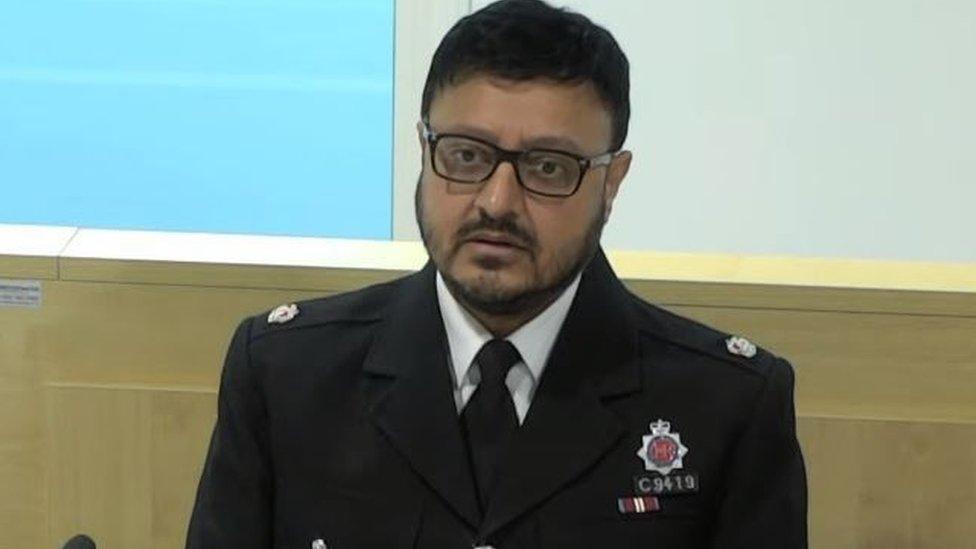Manchester Arena Inquiry: 'Very little need for strategy' after bomb
- Published
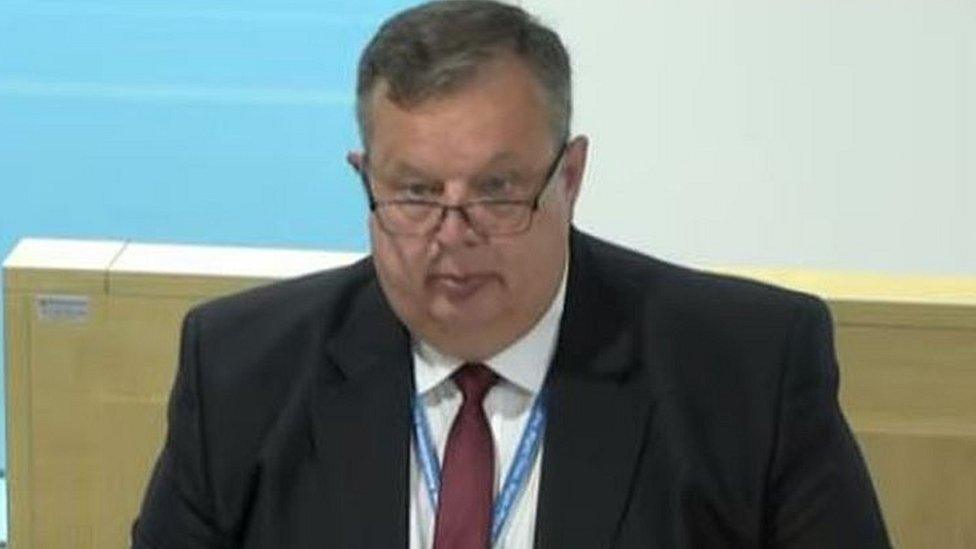
Neil Barnes was the on-call gold commander for the North West Ambulance Service on the night of the attack
An ambulance commander "provided no leadership" for two hours after the Manchester Arena bomb because there was "very little" need for strategic thinking, the attack inquiry has heard.
North West Ambulance Service (NWAS) deputy director Neil Barnes told a hearing he had waited for a tactical report before leaving home.
Mr Barnes was NWAS's on-call "Gold" strategic commander on the night.
He said tactical intervention was not needed as the scene was "managed well".
Twenty-two people were killed and hundreds more were injured when Salman Abedi detonated a device in the venue's City Room foyer at 22:31 BST on 22 May 2017.
The Manchester Arena Inquiry, which is looking at what happened on the night, was told Mr Barnes arrived at the incident control room at Greater Manchester Police headquarters at about 00:30 on 23 May.
He said he had wanted more detailed information before deploying to the joint emergency command room and was "waiting for a report back from my tactical commander….and whether Gold command was required".
The inquiry was told Mr Barnes watched TV news channels at home to try to "gather more intelligence" and found out some "very basic information that there had been an incident of some sort".
He said he was not told that a major incident had been declared by NWAS and was not aware at that stage that it was a mass casualty incident, adding that he would not have waited so long to deploy had he been fully aware, before admitting that he did not try to contact the ambulance control room in Manchester.

Twenty-two people were killed in the May 2017 bombing
Lead counsel to the inquiry, Paul Greaney QC asked Mr Barnes if he agreed that "in the first two hours after the attack, you provided no leadership?"
Mr Barnes said he agreed and accepted that he made "no decision during that period that made any difference to the response on the ground".
Guy Gozem QC, representing some of the bereaved families, asked Mr Barnes what decisions he made on the night.
"There was very little requirement for strategic decision-making on the night," Mr Barnes said.
"I took a number of decisions, particularly around casualty numbers and the requirement for casualty numbers and how they would be compiled."
The inquiry was told Mr Barnes handed over to a colleague at just after 04:00 because he had a holiday flight later that day.
He was asked if the fact he was going on holiday had had any impact on his decision to stay at home, to which he replied: "None whatsoever."
"I think my mindset was where do I mobilise to if I mobilise, because I have more than one option which are in different directions," he said.
"I was really conscious of having the exact information of where to respond to."
He added that while it was normal practice within NWAS for someone in his position to be allowed to finish early to take a holiday flight, "I think the best course of action with hindsight is probably to have cover for the full period".
The inquiry continues.

Why not follow BBC North West on Facebook, external, Twitter, external and Instagram, external? You can also send story ideas to northwest.newsonline@bbc.co.uk
Related topics
- Published9 June 2021
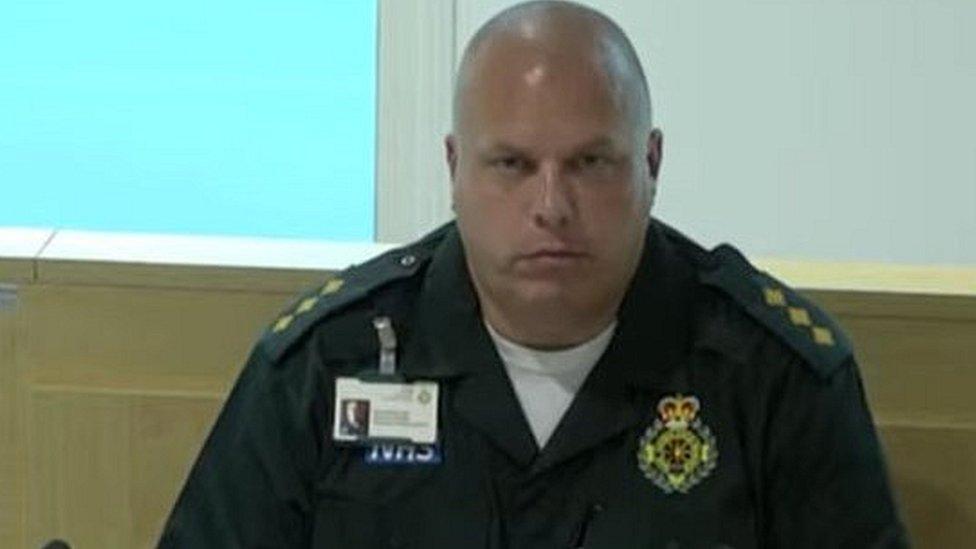
- Published8 June 2021
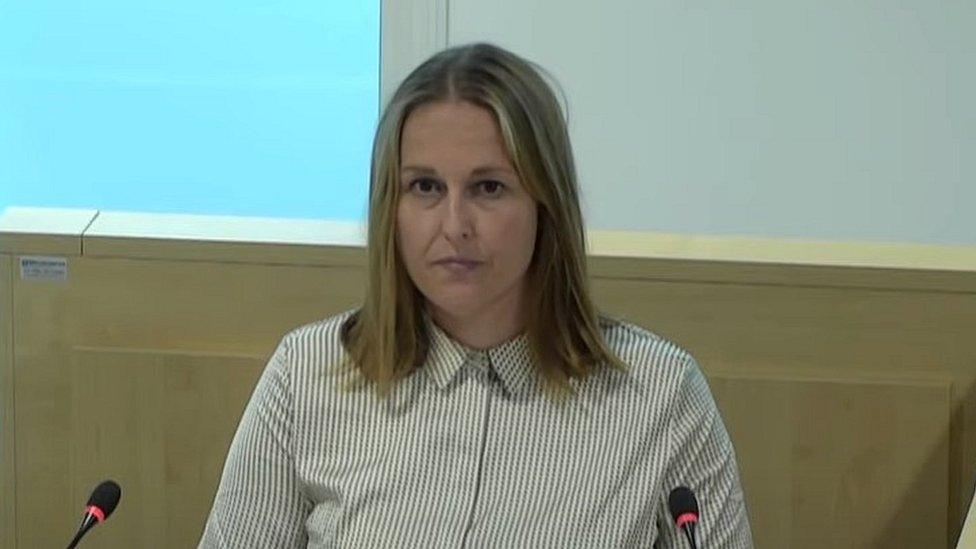
- Published7 June 2021
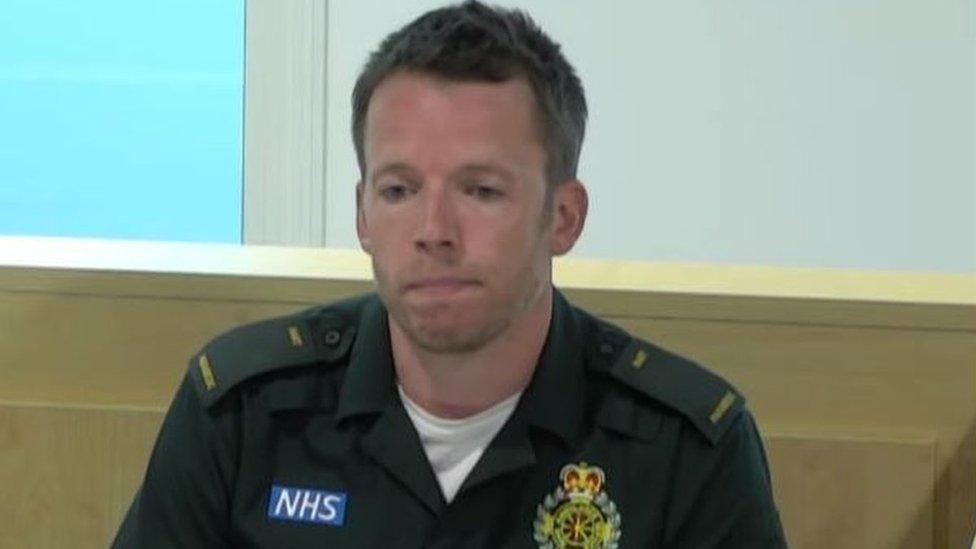
- Published27 May 2021
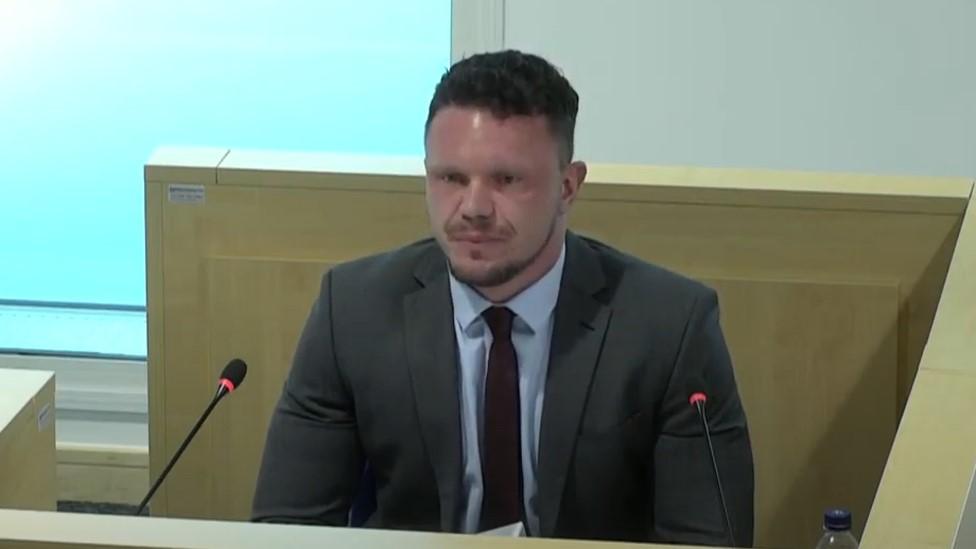
- Published26 May 2021
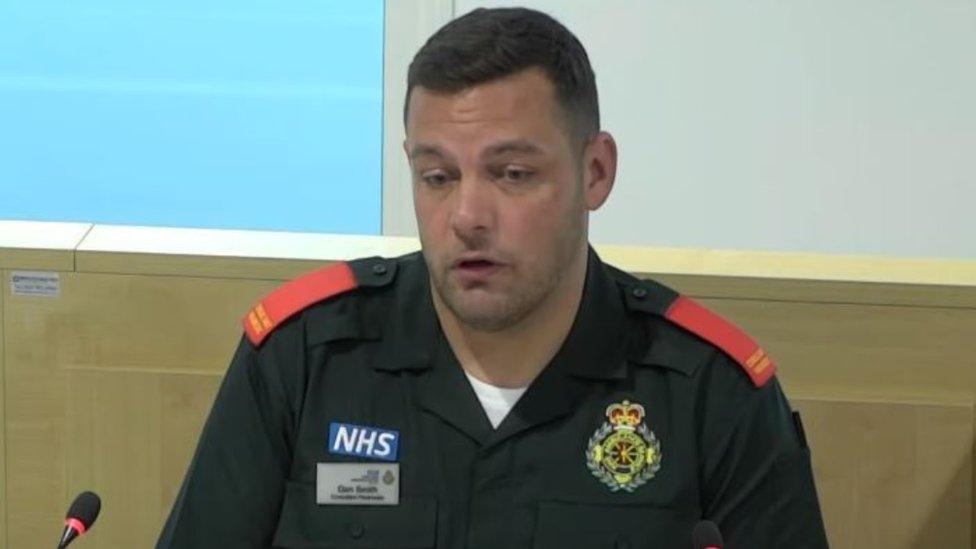
- Published25 May 2021
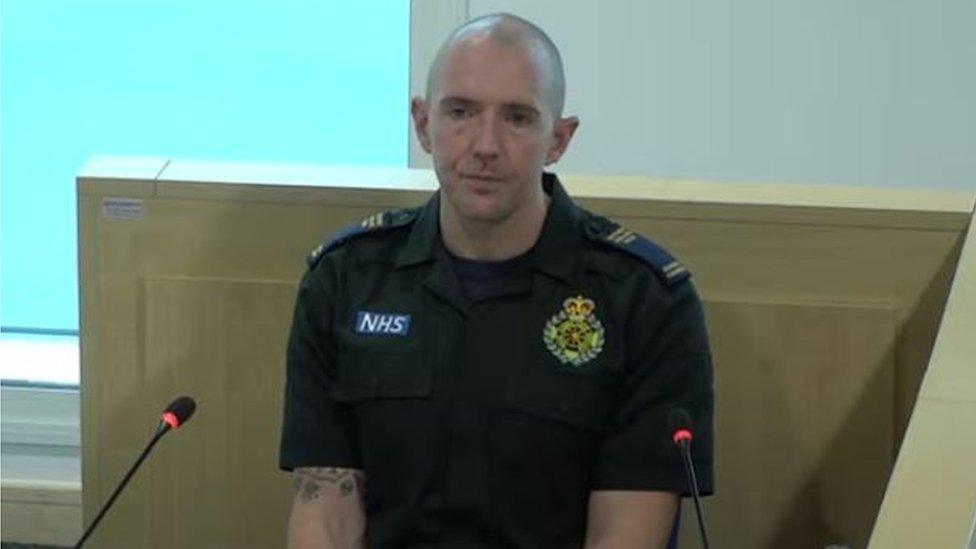
- Published24 May 2021

- Published20 May 2021
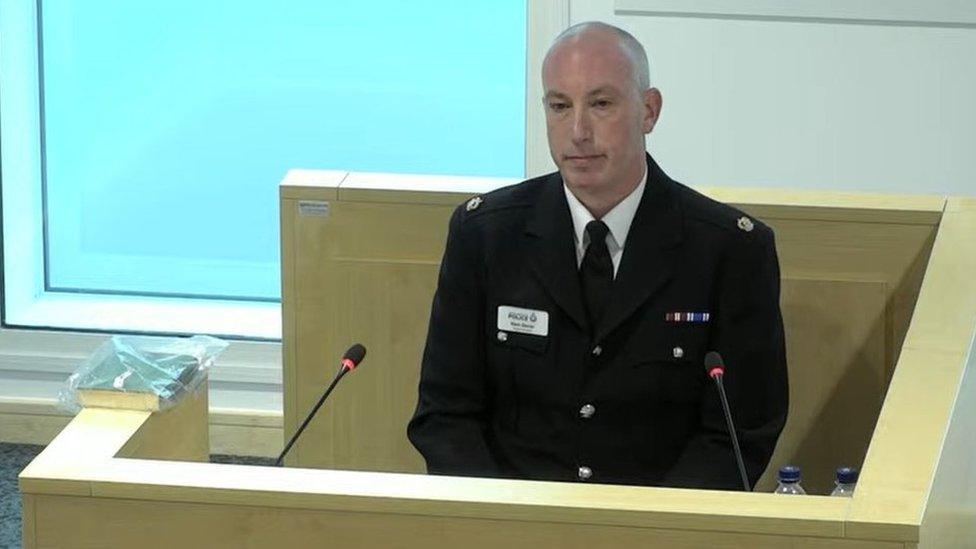
- Published18 May 2021
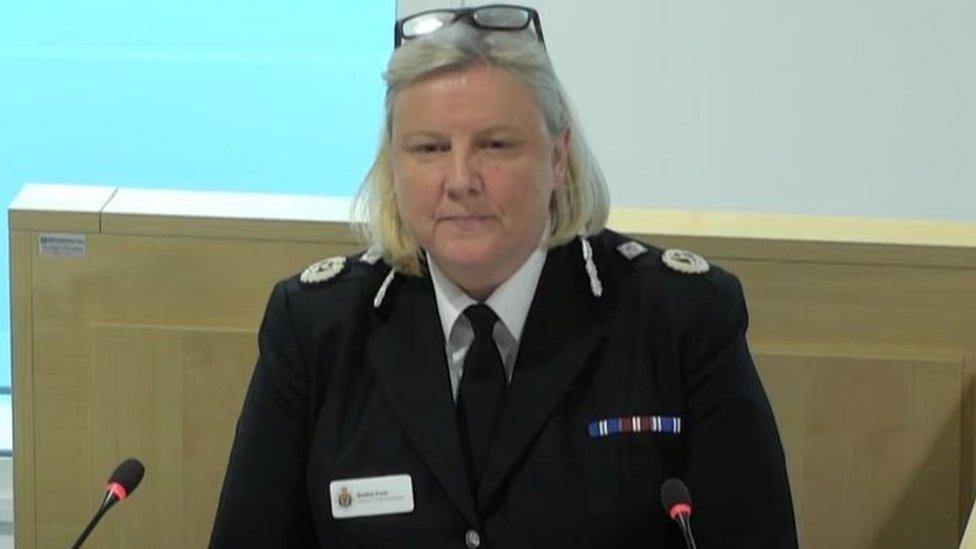
- Published17 May 2021
